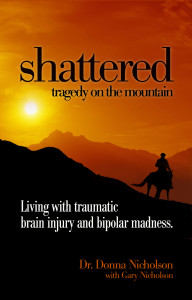Five minute interview with Dr. Delaney Ruston is worth watching.
One of the most realistic and gut-wrenching films ever made about mental illness and families is Unlisted: A Story of Schizophrenia by Dr. Delaney Ruston. So I was eager to see Dr. Ruston’s new documentary, Hidden Pictures: A Personal Journey Into Global Mental Health.
I was not disappointed. Dr. Ruston looks at mental health globally and paints a disturbing picture. One of the myths that she quickly dispels is that individuals who live in developing countries face less stigma and actually do better than their counter-parts in the U.S.. She also criticizes aid agencies for not focusing on mental health.
Her film is being pitched as one of the first documentaries about global mental health and it reveals that we have a long way to go if we want to rid the world of stigma and help people with mental disorders get meaningful help and treatment.
Despite the problems in our system, after watching this film, I felt grateful.
Not only do I often get advance copies of films, such as Dr. Ruston’s, but also books from other authors. I try to help first-time authors, especially those who are writing about their experiences with mental illness. Unfortunately, I don’t have time to read all of the books that are sent to me and that includes SHATTERED by Dr. Donna Nicholson and her son, Gary Nicholson. It caught my eye because Donna’s husband, John, suffered a traumatic brain injury that resulted in him developing bipolar disorder, according to the publisher. It’s that link between a brain injury and a mental illness that made me curious enough to correspond with Donna.
I asked her to explain what happened to her family. Here is what she sent me:
The summer of 1990 changed all of our lives forever-my husband’s, my son’s and mine. We could not have predicted a decade earlier when our lives were so blessed that in ten short years we would be facing the most devastating situation imaginable, and that it would tear our family apart bringing such enormous pain it was hard to bear.
In late June of 1990 my husband, John Nicholson, and two friends took their third horse-packing trip to Colorado only this time they had exchanged the relatively gentle Rainbow Trail in Salida, Colorado, which they had ridden in the summer of 1988 and 1989 for the rugged Weminuche Wilderness near Durango, Colorado. The decision to ride the Weminuche turned out to be a fateful one and it changed everything in an instant.
The men had been on the mountain only ten short minutes stretched out in a line with each man riding a horse and pulling a packhorse. John was in the front of the line not realizing that the third man in line had packed the coffee pot lid too close to the coffee pot on his pack horse. Once the horse began to move the pot lid hit the coffee pot and created a loud, startling rattle, which immediately sent the horse into a panicked run. That stampeded the other horses and my husband’s horse at the head of the line bolted for a sheer drop off into a canyon below. He pulled the horse’s head around to stop her and her response was to buck him high into the air.
He landed on the frontal lobe of his brain in a terrain of nothing but jagged, unforgiving rocks and all five horses behind him ran over him. He was knocked unconscious when he fell which doctors later told me made the traumatic brain injury much more severe. His back was crushed and all but one rib was broken. Those injuries healed but his head injury, which created the traumatic brain injury, did not. In fact, it triggered a bipolar disorder, which happens in about 9% of traumatic brain injuries.
The next ten years of the manifestation of his mental illness are not only unbelievable but ultimately led him while in a manic fit to attempt to shoot our only child as well as to break the law repeatedly. He chose to run from the authorities that were after him which drove him to shoot himself when he realized that when he was caught he would be facing at least six months in prison…
John’s TBI and mental illness stole him from us, leaving a stranger in his place. But our story is not without hope. It is the story of how my son and I struggled to understand why this happened and how — through our personal journey — we found healing and peace.
Based on that email, I have moved Shattered to the top of my must read pile.
If you have a book worth plugging or that specifically helped you, please let me know by writing to pete@peteearley.com .



